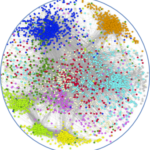Link to Pubmed [PMID] – 31551908
Link to DOI – 94110.3389/fneur.2019.00941
Front Neurol 2019 ; 10(): 941
Apathy is one of the six clinical criteria for the behavioral variant of frontotemporal dementia (bvFTD), and it is almost universal in this disease. Although its consequences in everyday life are debilitating, its underlying mechanisms are poorly known, its assessment is biased by subjectivity and its care management is very limited. In this context, we have developed “ECOCAPTURE,” a method aimed at providing quantifiable and objective signature(s) of apathy in order to assess it and identify its precise underlying mechanisms. ECOCAPTURE consists of the observation and recording of the patient’s behavior when the participant is being submitted to a multiple-phase scenario reproducing a brief real-life situation. It is performed in a functional exploration platform transformed into a fully furnished waiting room equipped with a video and sensor-based data acquisition system. This multimodal method allowed video-based behavior analyses according to predefined behavioral categories (exploration behavior, sustained activities or inactivity) and actigraphy analyses from a 3D accelerometer. The data obtained were also correlated with behavioral/cognitive tests and scales assessing global cognitive efficiency, apathy, cognitive disinhibition, frontal syndrome, depression and anxiety. Here, bvFTD patients (n = 14) were compared to healthy participants (n = 14) during the very first minutes of the scenario, when the participants discovered the room and were encouraged to explore it. We showed that, in the context of facing a new environment, healthy participants first explored it and then engaged in sustained activities. By contrast, bvFTD patients were mostly inactive and eventually explored this new place, but in a more irregular and less efficient mode than normal subjects. This exploration deficit was correlated with apathy, disinhibition and cognitive and behavioral dysexecutive syndromes. These findings led us to discuss the presumed underlying mechanisms responsible for the exploration deficit (an inability to self-initiate actions, to integrate reward valuation and to inhibit involuntary behavior). Altogether, these results pave the way for simple and objective assessment of behavioral changes that represents a critical step for the evaluation of disease progression and efficacy of treatment in bvFTD.


